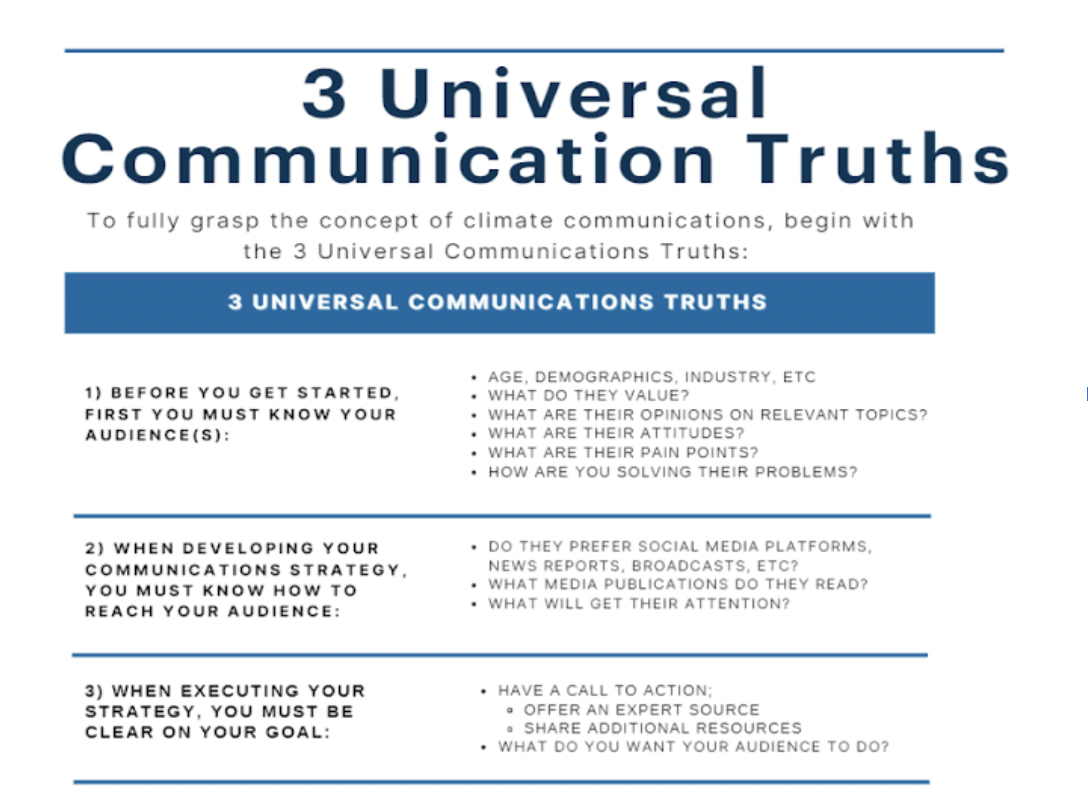Strategic Communications at Aspen Ideas: Climate
What better place to discuss climate change than Miami Beach? In March, Redwood’s Senior Account Executives Jessica Harrington and Emily Prettyman attended the Aspen Ideas: Future Leaders Climate Summit and the Aspen Ideas: Climate conference in Miami, Florida. They were among the 250 young leaders selected to come together to interact, learn, and collaborate on ideas critical to addressing the realities of climate change.
The Future Leaders attended interactive workshops and discussions on environmental negotiation, climate justice and education, strategic communications, extreme heat, sea level rise, and more. Speakers included Vice President Kamala Harris, who spoke on issues of environmental justice and inclusion, calling on Future Leaders to “think about this movement in a way that we are making it affordable for a working family that wants to participate.” Other prominent speakers were Katherine Viner, Chief Editor of the Guardian, and Sally Buzbee, Executive Editor of the Washington Post, who also spoke about expanding the reach of the climate movement through storytelling.
Buzzbee called for climate journalism to become more informal, accessible, and visual, adding that “data visualization is one of the breakthroughs in storytelling.” She said that while simplifying complex issues such as climate change can pose challenges, we can bypass that by “keeping that rigor of the science while also providing more useful stories day-to-day.”
Communicating about the climate crisis is imperative to driving real solutions forward. A simple act like discussing the climate with friends or members of your professional network can jumpstart a feedback loop that increases impactful awareness and concern. Katherine wrapped up the discussion by imploring the audience to stay prepared for these important conversations. “We can’t control the moments when people are interested in our topic, but we can have the information ready when they are seeking it.”
As part of their attendance at Aspen Ideas: Climate, Jessica and Emily created a Climate Communications Toolkit to help communicators amplify messages about the climate crisis that highlight solutions and key messages. Today, the practice of climate communications is more important than ever before. To effectively communicate about the climate crisis the toolkit suggests that we must understand the three Universal Communications Truths, which are: 1. You must know your audience(s) 2. You must know how to reach your audience(s) 3. You must know your goal.
Messaging and Content Development
Your audiences’ positive reception of climate communication depends on how well the messages are structured. Messaging, in essence, is the bulk of what goes into press releases, social media posts, media campaigns, interviews, documentaries, or whatever communication content you are producing. In tandem with the communication truths, there are questions to consider when crafting your key messages: Why should your audience care? What problem of theirs are you trying to solve? How are you different/why do you stand out? Do you have expert advice to offer?
After laying the foundation for your key messages, it’s important to not only highlight how a solution serves to mitigate or adapt to climate change but also how it provides equitable, environmental, and economic advantages. Effective climate communicators are mindful of the intersections between people, the planet, and profit and incorporate these advantages into their messaging.
Media Relations
Download the Toolkit for a basic overview of how to deliver key messages, the key elements of a quality press release, and the differences between earned and owned media. Once in a while, you may have a story that’s worth pitching to reporters, and other times you might be better off telling stories from your own perspective and sharing them directly with your network. Social media is one form of owned media that can effectively deliver key messages to your audiences. Connecting and engaging with your target audience or other people and organizations with similar target audiences can be an effective strategy for delivering your key messages well.
Relationship Building
Redwood’s Climate Communications Toolkit highlights the importance of your network. Community matters in the climate industry, and having a strong network is crucial for maximizing the reach of your messages. The global nature of the climate challenge necessitates cooperation. We need one another to maintain a sense of hope, share ideas, and devise sustainable ways to create a climate-forward future. Start by keeping a positive relationship with everyone involved in your work, whether with journalists, your business competition, or your audiences. Plug yourself into spaces where you can develop new relationships and collaborate on meaningful projects. More importantly, don’t be afraid to interact with those who hold opposing views from you because doing so will not only test your ability to think critically but also communicate effectively.
Regardless of the type of work you do, you can make a positive impact on climate progress within your industry. If you’re looking to work on climate solutions more directly, Redwood’s Ready to Work in Climate? post provides helpful guidance for breaking into the climate space and finding your place in the movement. If you’re just getting started on your climate journey, Redwood’s climate key terms glossary blog post will also be available soon and will deconstruct basic climate education in accessible, digestible ways. In the meantime, continue to learn, ask critical questions, and create space for important dialogue surrounding climate change.


